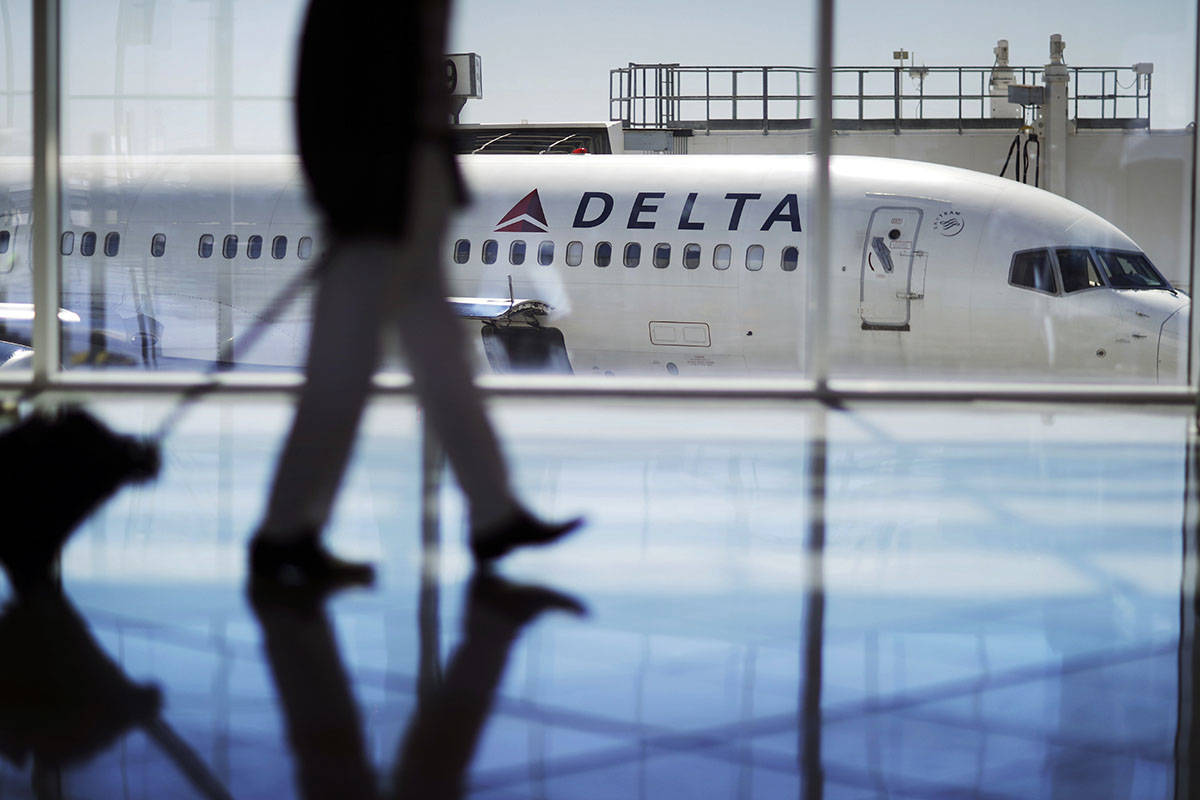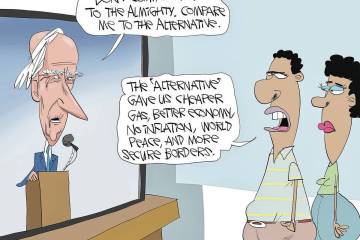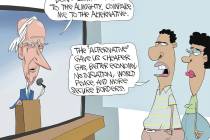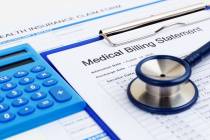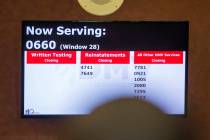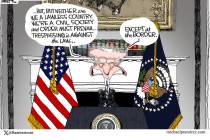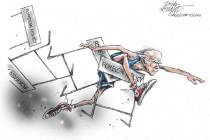COMMENTARY: COVID testing for domestic airline passengers won’t fly
When it comes to stopping the spread of COVID-19, are we about to go too far?
Maybe. The Centers for Disease Control and Prevention recently issued a rule requiring travelers to wear a mask on planes, in airport terminals and on mass transit. Earlier this month, it also imposed a testing requirement for inbound travelers to the United States.
Most experts like these common-sense precautions. They predict the measures will curb the spread of the virus, including dangerous new variants from England and South Africa.
But now the CDC is reportedly considering another rule that would require domestic air travelers to get tested no more than three days before their departure.
That probably won’t fly.
Adding a testing rule for domestic flights would stop more than COVID-positive passengers from flying. It would also have a chilling effect on essential trips. It’s problematic and sets a troubling precedent. Worse, it may yield no measurable results.
We’ve already seen a backlash from international travelers against the new testing rule. The reason is simple: COVID tests are expensive. The costs range from $20 to $850, according to Johns Hopkins University. I’ve talked to travelers who say they pay around $100.
So a family of five returning to the United States from a funeral overseas would have to pay a minimum of $500 just to get tested. No wonder people are rethinking their international travel plans.
Many of them are leisure travelers, which is fine. They have no business going on vacation now. But asking domestic air travelers on essential trips to pay an extra $100 on top of their airfare would almost certainly stop many Americans from flying — not just the infected ones.
Is it right to cancel these necessary trips by raising the cost of air travel?
There’s also the issue of fairness. Why single out airlines when there are many other forms of mass transportation?
True, air travel is one of the most visible forms of mass transportation. Scientists have studied the link between air travel and the spread of coronavirus, with inconclusive results. The CDC says most viruses, including COVID-19, don’t spread easily on flights because of how planes filter cabin air.
Why pick on planes, then?
Because the nation’s decision-makers and thought leaders prefer them over buses, cars and trains. Airlines tend to get more than their fair share of public attention, even when they don’t necessarily deserve it.
If the CDC requires tests for domestic air travelers, what will be next? Surely, trains and cars should be on the list, too. More than 86 percent of trips are taken by personal vehicle, according to government figures. That’s followed by mass transit, walking and biking. Only a small fraction — roughly 0.1 percent — of trips Americans take are plane flights.
Wouldn’t it be more effective to test Amtrak passengers or motorists crossing state lines? Of course, thanks to federal pre-emption, the government can more easily require pre- and post-flight tests. Doing the same for drivers may be difficult, from a legal standpoint.
But still. Where does it end?
Requiring a test for domestic air travelers may be a step too far. It’s also a slippery slope. Testing for other forms of travel is not far behind. Or even an outright ban on air travel, which Canada did recently for flights from Mexico and the Caribbean.
It will be difficult, and maybe impossible, to measure the results of the CDC’s current mask and testing policies. Already, the number of COVID cases is falling. If it continues on that trajectory, can the government credit its new restrictions? In the absence of scientific studies, we can only guess.
The debate also distracts from the real problem, which is that too many travelers are behaving irresponsibly. Regulation won’t fix that. Perhaps investing in educational programs to encourage passengers to practice social distancing and wear masks, would work better than raising everyone’s airfare by $100.
Christopher Elliott is the founder of Elliott Advocacy, a nonprofit organization that helps people solve their consumer problems. Email him at chris@elliott.org.



